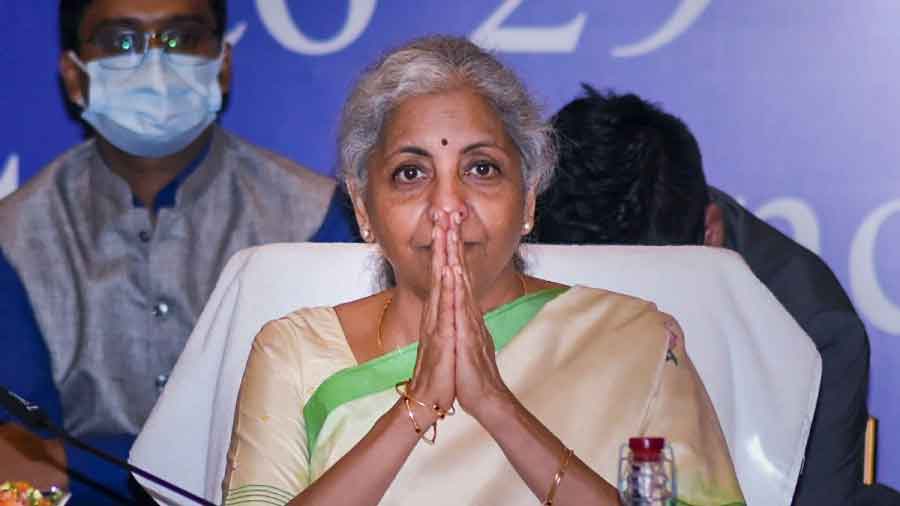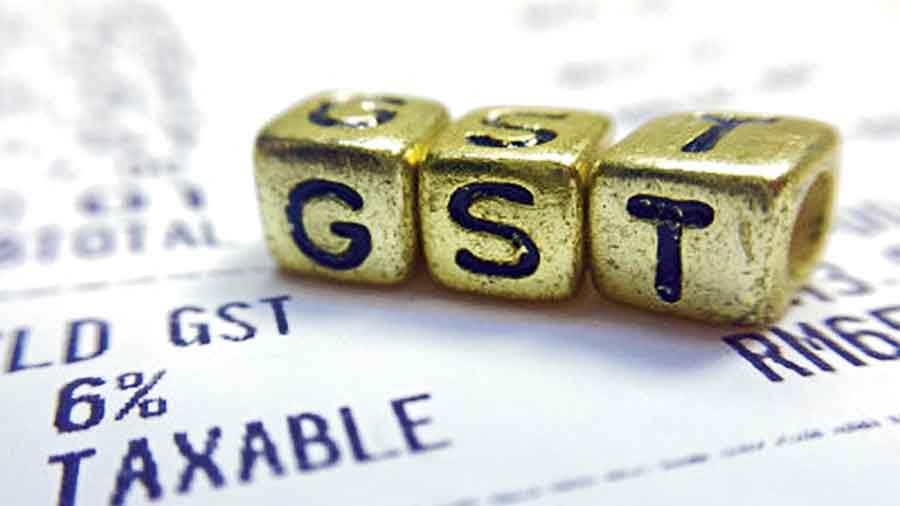The compensation regime under the goods and services tax (GST) ends on Thursday, but the GST Council failed to arrive at a decision on whether to continue with the payout to the states. About a dozen states on Wednesday pitched for extending by a few years the compensation paid to the states for revenue lost from the implementation of the goods and services tax (GST) regime.
A final decision on the compensation is likely to be taken at the next GST Council meeting in the first week of August, finance minister Nirmala Sitharaman said while talking to the media after the 47th GST Council meeting in Chandigarh.
”As many as 16 states spoke on GST compensation in today’s meeting. Of this there were 3-4 states that said that they have to stand on their own and not depend on compensation,” Sitharaman said.
Chhattisgarh finance minister T.S. Singh Deo told The Telegraph that “a way out has to be found to address the fiscal concerns of the states. Especially producing states have been losing revenue and if they are not adequately compensated, they would have to think of possible measures to meet its revenue needs.”
“The Supreme Court has clearly stated that the GST Council is only an advisory body. We do not want confrontation with the Centre, but freedom to tax conceded to the GST regime should not impact the development of the state. The changes in CGST and SGST sharing formula is one method to share revenues with the states,” he added.
The GST Council has also decided that a group of ministers will be set up on the necessity of forming a tribunal to resolve any disputes between the Centre and states.
Casino tax
The GST Council on Wednesday deferred a decision on levying a 28 per cent tax on casinos, online gaming, horse racing and lottery pending more consultations with stakeholders.
The Council also granted three months for the GoM on rate rationalization to submit its report.
Finance minister Nirmala Sitharaman said a group of ministers headed by Meghalaya chief minister Conrad Sangma has been asked to consider submissions of stakeholders again on the valuation mechanism and submit its report by July 15.
The GST Council approved the interim report of the GoM on rate rationalisation, headed by Karnataka chief minister Basavaraj Bommai.
The council also gave a 3-month extension to the panel for submitting a full report on rate rationalisation and potential tax slab merger under the GST.
Abhishek Jain, partner indirect Tax, KPMG in India, said “the GST Council has provided an extension of a few months to the GoM to submit its report on tax slab rationalisation. Considering that the current revenue neutral rate is short of the target rate of 15.5 per cent, new GST tax slabs may be expected. Additionally, the Council has proposed withdrawal of exemptions for a few supplies, alongside rate changes for a few supplies either to correct inversions or otherwise. These amendments are expected to give a slight uptick to the GST collections.”
While there have been suggestions of three-tier GST structure, which would rationalise the rates, concerns have been expressed that increasing the rates at the lowest slab would add to the inflationary pressure on the economy.
Asked about the potential impact of rate increases on inflation, Sitharaman said inflation is not any one particular state’s concern. “All ministers (in Council) are aware. They are all looking at the system keeping that (inflation) in mind,” Sitharaman said.
Leather impact
The leather industry has supported the government’s move to rationalise the inverted duty structure by raising GST rates to 12 per cent from 5 per cent.
“There used to be excess input credit and industry had to go back to the government for realisation of the money. Now they can charge 12 per cent.
“This will help the tanners and also exports,” said Ramesh Juneja, president CLC Tanners Association and committee member, Bharat Chamber of Commerce.
The Council has also raised the duty on job work in relation to the processing of hides, skins and leather and manufacture of leather goods and footwear to 12 per cent.
“We will be studying the decisions and make representations wherever required,” said Sanjay Leekha, chairman,Council for Leather Exports.












